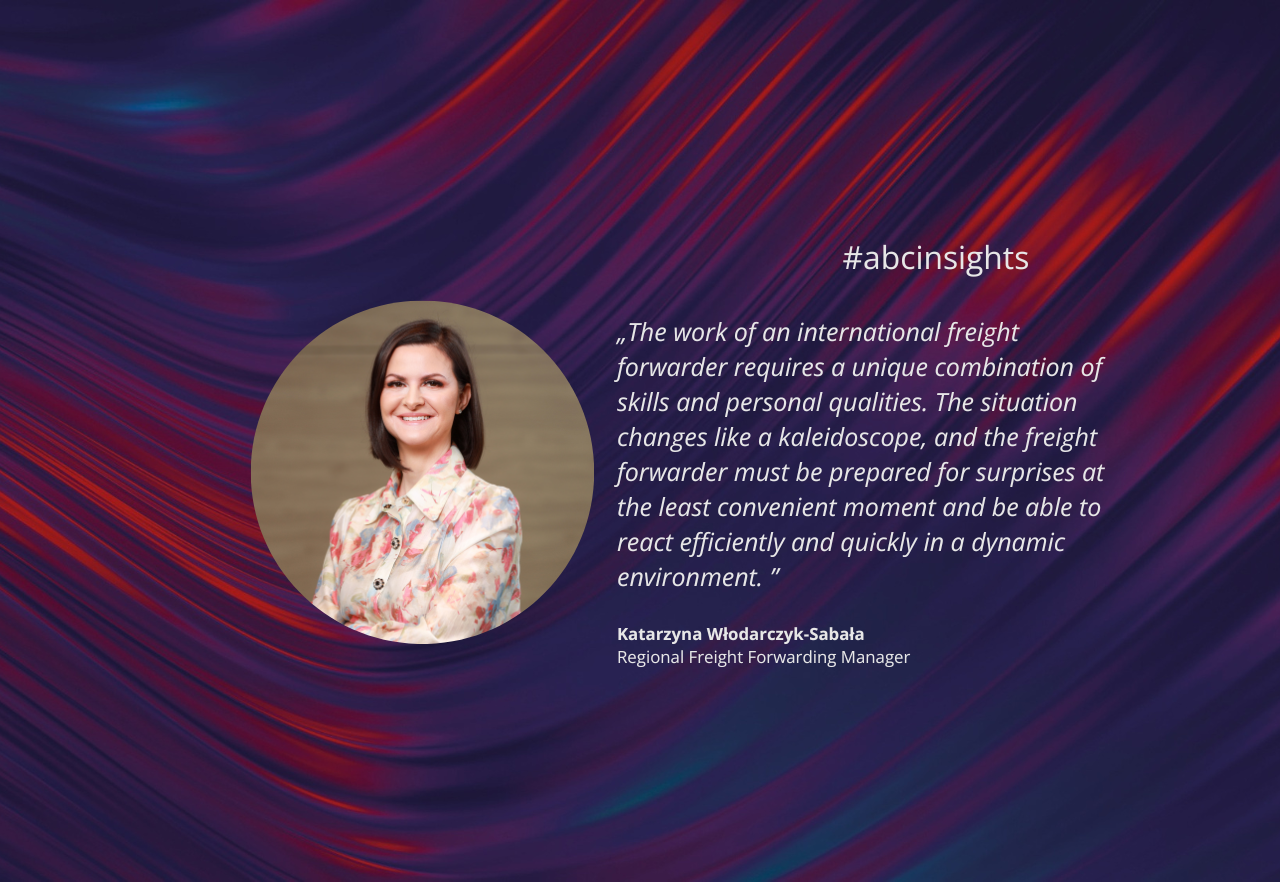The work of an international freight forwarder requires a unique combination of skills and personal qualities. The fast pace, time pressure and the need for language skills make stress resilience, communication skills and flexibility crucial in this profession. Modern technologies, including logistics platforms and artificial intelligence, help streamline work, but it is still up to the person to manage chaos and ensure every detail is attended to. What traits and skills ensure professional customer service in this dynamic environment?
I have been working at ABC Czepczyński for fourteen years, thirteen of which I have spent in managerial positions in two branches of our company. s a result, I have recruited and hired dozens of people as international freight forwarders. This refers to road freight forwarders, as ABC Czepczyński specializes in this area.
I have recruited many excellent specialists who have worked or continue to work with me for many years (including my current deputy, who will celebrate ten years of service this year), and I have also had some “misses.” Some individuals did not succeed as freight forwarders.
Being involved in the recruitment process and onboarding new employees for many years, and having worked as a freight forwarder myself, has allowed me to observe the traits, personality, predispositions, and skills that a person must have to work in international forwarding.
Freight forwarder’s duties and skills
Let us first establish what activities are included in the freight forwarder’s scope of duties. These certainly include: acquiring orders, analysing and selecting optimal routes and means of transport, setting loading and delivery dates, negotiating contracts and prices with carriers and customers, preparing transport documentation and monitoring the progress of orders.
All this takes place under enormous time pressure, and success or failure often depends on minutes. The transported goods are worth tens of thousands of euros, and if they do not arrive on time, the production process may even be halted. This is where the first and most important characteristic of a freight forwarder emerges: stress resistance. The situation changes like a kaleidoscope, and the freight forwarder must be prepared for surprises at the least convenient moment and be able to react efficiently and quickly in a dynamic environment.
Fluency in a foreign language and communication skillsare also essential to building long-term relationships with clients and subcontractors. Working with a client is not always simple and pleasant, so patience and responsibility are also needed. Additionally, sales and negotiation skills are crucial. Communication is usually in English, although knowledge of other languages, especially German and French, is very valuable to me during recruitment.
Energy, creativity and independence complete the set of traits necessary to succeed as an international freight forwarder.
The impact of digitalization on the forwarding industry
I also think it’s worth emphasizing that when taking a job as a freight forwarder, proficient computer skills and openness to the inevitable digitization in this industry are required. What has changed over the last 3-4 years? The now reigning and notorious artificial intelligence makes shippers’ daily work easier. Algorithms search for orders ready to be processed, suggest subcontractors, and help optimize routes. When used correctly, AI speeds up work and increases efficiency. IT companies compete to create logistics platforms, autonomous freight exchanges, and various integrations. As of today, a competent and focused freight forwarder must oversee and handle all this.
Education or willingness? What matters in the work of a freight forwarder
Finally, an interesting fact: you don’t need a specialised degree to work in road freight forwarding. Through training conducted by our company, everything can be learned within a few months. Gaining knowledge combined with daily practice is faster than learning theory at university.
All the skills and competences I have mentioned can be innate or learned. Some candidates will have them better developed, while others they will require additional training. Conclusion? Success in this industry depends on willingness and attitude. As we say at ABC Czepczyński – the most important thing is the attitude.

Katarzyna Włodarczyk-Sabała, Regional Freight Forwarding Manager at ABC Czepczyński
Associated with ABC Czepczyński since 2010. Manages two company branches, responsible for recruitment and training of new specialists, among other duties. A manager with extensive experience in the road transport industry.
